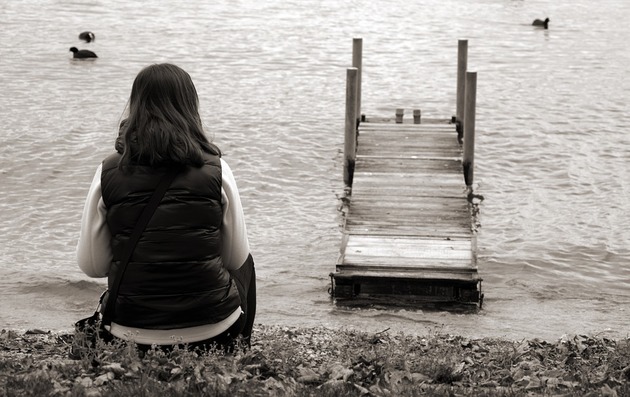It’s often said there is no word in the dictionary that describes a parent who has lost a child. I’ve also discovered there isn’t an official name for someone whose boyfriend has died. Since starting an online support group to give other young widows/widowers a safe space to discuss dating and possibly remarriage, I’ve encountered a few members who have lost their significant other before they had the chance to exchange vows.
While I’ve never personally lost a boyfriend, I have lost a spouse. I know firsthand the pain of losing the love of your life. I also know that a relationship status doesn’t determine the intensity of that pain.
Often, people who have lost a boy/girlfriend feel their grief is compounded by others who question the intensity of the relationship and wonder why they haven’t gotten over the loss within a “reasonable” amount of time. It can seem they have nowhere to turn and that no one understands their challenges.
Jon Alger of Meridian, Idaho knows all too well the complexities that come with losing a fiancé and being expected to simply “move on”. The pair was together for one year before she was tragically killed in a car accident. And, to make his pain even more unbearable was the fact that she was pregnant with his child.
“No one really acknowledged that I lost my soulmate or that I was a father,” he explained. “I watched her die and yet I became the bad guy and not the victim.”
His fiancé’s death also created a rift with his would-be in-laws. He said his fiancé wanted to be buried but her family opted to have her cremated. Even worse, he believes, is that they took everything he had of hers. Thankfully though, his friends have been a great support system and are helping him through the grieving process.
As a spouse, I automatically had legal rights that aren’t typically afforded to unmarried couples. The family of my late husband (side bar: Can I just point out how weird it is typing “late husband”?) specifically told me they understood my decision superseded any plans they may have had for funeral arrangements. My grieving process would have been so much more complicated had I not been able to carry out what I thought he would have wanted. Do remember though, that as a boy/girlfriend, there doesn’t have to be a near-slugfest between you and his/her family. Things can be handled amicably.
Cara Gurney is such an example. The Atlanta resident lost her boyfriend eight months ago when she was 36 years old. Though the pair had only dated for four months, his family fully embraced her following his death.
“His family has been amazing. They treated me as if I were his wife throughout the funeral process. They asked my thoughts on what his final wishes would have been and even included me in his obituary as his ‘loving girlfriend’,” she said. “I stood with them for the wake and had the ultimate honor of carrying his ashes to the church, our only trip down the aisle together.”
Cara was also permitted to take items from her boyfriend’s home which were of sentimental value. She is forever grateful to his family as she recognizes “they could have easily turned [her] away”.
To help cope with her grief, she sought out online widow support groups but confesses she often feels like an imposter.
“I don’t really think of myself as a widow. Widows earned their title as ‘wife’ and now as ‘widow’. I don’t want to claim something that’s not mine,” said Cara. “I really struggle at times because I don’t have a title, word or place to fit in. I don’t have a phrase to refer to him that equates with ‘late husband’ as ‘late boyfriend’ wouldn’t be recognized.”
This has been the mission of Connie Winch: to provide a forum where people like Jon and Cara can come together to discuss issues that are unique to having lost a partner they hadn’t married.
She started the support group, “Unwedded Widow” in July 2010. Although she admits that she didn’t coin the term, she felt it was important for unwedded widows to be with others who have experienced the same type of loss:
Sadly, not all widow groups accept us as being widows. I don’t think I’ve met an unwedded widow who doesn’t have at least one story of being excluded from something designed for widows because of their lack of married status when their beloved died,” said Connie, whose boyfriend suffered a sudden and fatal heart attack when he was 34. “When we are accepted, I am always grateful but there are still things many, if not all, unwedded widow experience that ‘typical’ widows do not. Yes, the pain and grief may be the same but there may not be an understanding of the unique path that unwedded widows travel.
An example of the differences between a widow and an unwedded widow is that many of her group’s members were not able to get married to the person they felt was their soulmate before death intervened.
“Unwedded widows represent a wide range of levels and types of relationships—from the very beginnings of a promising one, to planning a wedding that would’ve happened soon, to living together with no real marriage plans,” she said. “Some had that dream; some didn’t. But for those who did, that particular dream—of marrying that person—shattered when their beloved died. I’ve had people tell me I can still get married someday, and while that’s true, I can never get married to Ron.”
The Unwedded Widow page is open to members who fit this definition as well as widows. Members say they are grateful to find a place in which they can find understanding and support from others.
Connie hopes her page will help unwedded widows’ family and friends and even society in understanding how losing a partner can take an emotional, mental, financial and even spiritual toll on the surviving partner and that the loss is not something they should be expected to just get over.
“My goal is to move the needle on this topic,” she said. “I try to educate others whenever I encounter ignorance. A dear friend once told me that I was limiting my future dating options and adding to my own unhappiness by identifying as widowed. This was very painful to hear. Identifying as widowed has actually helped me immensely. It honors the magnitude of my loss and how life changing it was for me. Our loss is just as significant as losing a spouse and we simply aren’t trying to get attention or additional sympathy by identifying as widowed.”



